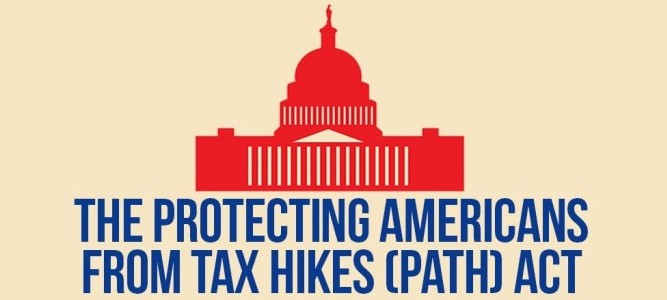At the end of 2015, the Protecting Americans from Tax Hikes Act (PATH) was signed into law, allowing marijuana-related business owners to once again take advantage of depreciation and energy tax benefits. The new package provides a set of incentives that could greatly reduce tax costs for qualifying businesses.
Section 179
The first benefit for cannabis businesses that made equipment, asset and building improvements in 2015 is the Section 179 deduction. These businesses can now expense a combined $500,000 for production equipment (new or used), off-the-shelf software, and up to $250,000 in leasehold improvements. This deduction phases out dollar-for-dollar for equipment and improvements costing more than $2 million, and carries the stipulation that these upgrades need to have been “in service” by December 31st of the tax year. The example below demonstrates how beneficial this deduction could be for tax savings.
Assuming upgrades were “in service” in 2016, the following cost savings could be applied to a purchase of $500,000 in equipment:
$500,000 in equipment
– $175,000 assuming a 35% tax rate
= $325,000 true equipment cost
Bonus Depreciation
The next development to come from the PATH Act is bonus depreciation. Bonus depreciation is the provision that allows businesses to expense off a portion of an asset in the year it is added. This has proven to be very helpful for businesses with large amounts of qualifying equipment, as they are able to save large amounts of tax in the year of purchase. A gradual phasedown has been implemented. The bonus depreciation plan through 2019 breaks down as follows:
- As of January 1, 2015 through December 31, 2017: 50%
- As of January 1, 2018 through December 31, 2018: 40%
- As of January 1, 2019 through December 31, 2019: 30%
These rates mean that production equipment and improvement purchases with less than 20 year lives will be able to be expensed at 50% of the asset price in the year of purchase through 2017, 40% in 2018, and 30% in 2019. While this section does carry certain stipulations around qualified assets, it is a great opportunity for companies to invest in necessary equipment for a significant amount of savings.
Qualified Leasehold Improvements
Another significant piece of the PATH to help marijuana businesses saving on taxes comes via qualified leasehold improvements. Depreciation lives are reduced to 15 years, instead of the 39 year schedules normally applied. This means that after Section 179 and bonus depreciation deductions, a business will be able to accelerate remaining tax value of improvements over 15 years instead of 39 years. This rapidly reduces the timeframe in which a business can depreciate an asset and enjoy the tax benefits more quickly.
Energy Tax Incentives
The final benefit to cannabis business owners to come out of the PATH Act is the extension of the Energy Efficient Commercial Buildings deduction, or Section 179D. Now available through December 31, 2016, this is a deduction of up to $1.80/sf available to those investing in energy-efficient improvements that aim to reduce energy use within the building envelope (insulation, doors, windows, etc.), air conditioning and heating ventilation, and energy-efficient lighting. To qualify for the deduction, the building’s energy systems must be a specified percentage more efficient than the American Society of Heating, Refrigerating, and Air-Conditioning Engineers (ASHRAE) 2001 standards. It should be mentioned that these incentives are different than Energy Investment Tax Credits, which pertain to alternative energy sources like solar, geothermal, and wind.












 As more states legalize some form of marijuana use, business owners are finding new barriers to entry in the industry. One of the biggest involves the search and procurement of real estate. Acquiring an operation license is only the first step in what can be a long, tedious, uphill battle toward a successful cannabis operation.
As more states legalize some form of marijuana use, business owners are finding new barriers to entry in the industry. One of the biggest involves the search and procurement of real estate. Acquiring an operation license is only the first step in what can be a long, tedious, uphill battle toward a successful cannabis operation. Finding real estate that works for the growth and sale marijuana can be very challenging. Zoning and restrictions regulating the distance from schools, day care centers, rehab facilities and other make it difficult in a mature market like Denver. Business owners who want to get into the industry now are buying existing locations, since they are already “grandfathered in” and have met proper distance and zoning requirements. Most marijuana production facilities are large, open spaces that require ample ventilation and can sustain lighting and watering systems. Finding property that meets all of these criteria can certainly be a challenge, and has even led to the emergence of marijuana-focused real estate brokers and agencies.
Finding real estate that works for the growth and sale marijuana can be very challenging. Zoning and restrictions regulating the distance from schools, day care centers, rehab facilities and other make it difficult in a mature market like Denver. Business owners who want to get into the industry now are buying existing locations, since they are already “grandfathered in” and have met proper distance and zoning requirements. Most marijuana production facilities are large, open spaces that require ample ventilation and can sustain lighting and watering systems. Finding property that meets all of these criteria can certainly be a challenge, and has even led to the emergence of marijuana-focused real estate brokers and agencies.